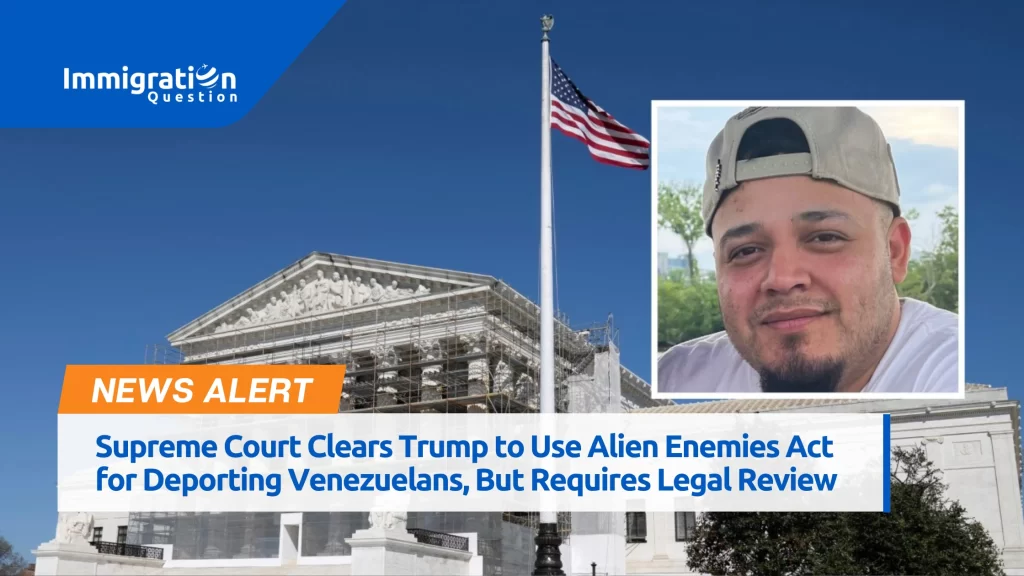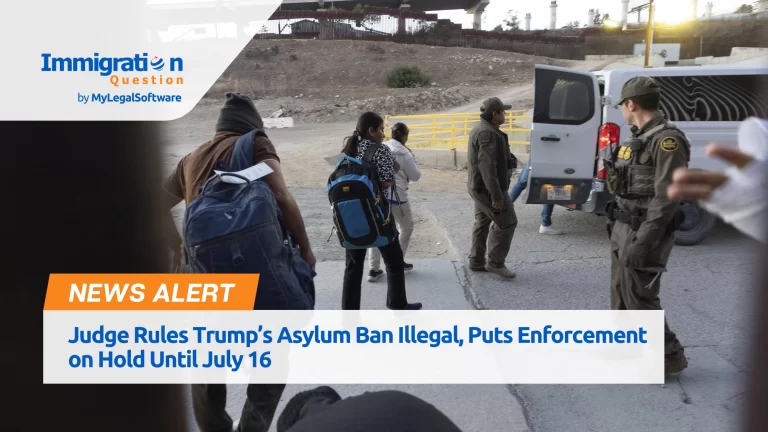The U.S. Supreme Court recently ruled in favor of the Trump administration’s use of an 18th-century wartime law to deport Venezuelan migrants. However, the decision came with an important caveat: the migrants must be granted a court hearing before deportation, a provision that may slow down the government’s deportation efforts.
A Divided Decision
In a narrow ruling, the Supreme Court authorized the government to use the Alien Enemies Act (AEA), a law dating back to the late 1700s, to deport Venezuelan migrants accused of being gang members. However, the court emphasized that these individuals must have the opportunity to contest their deportations in court before being removed from the country.
Most justices sided with the Trump administration’s appeal, yet they stipulated that legal challenges should be heard in Texas, not Washington, D.C., as initially sought by the administration. This ruling also seems to block the immediate resumption of deportation flights, which had already sent hundreds of migrants to an infamous prison in El Salvador.
Legal Oversight and Deportation Tensions
The decision began after the Trump administration declared Venezuelan migrants, particularly those affiliated with the Tren de Aragua gang, to be an “invading force,” leading to deportations. These deportations had already begun, and the flights had already taken place and had been carried out without the court hearings that the justices now required.
In dissent, liberal justices criticized the administration’s approach, arguing that the government had been attempting to bypass judicial review. One justice highlighted concerns about the difficulty migrants might face in challenging deportations from detention facilities across the U.S. Another justice noted the potential long-term consequences, including the government’s argument that deportees could be sent to a prison in El Salvador by mistake.
Legal Context and Prospective Consequences
Due to its infrequent use in modern times, the Alien Enemies Act, which has not been invoked since World War II, has been controversial. The Supreme Court decision permits the Trump administration to go ahead with the deportations, but only where the targeted individuals are allowed to appeal their removal in court.
The case is a focal point of contention, signaling the recurring tension between the judiciary and the White House. In other emergency appeals, Trump has prevailed before the Supreme Court recently, a factor that means courts may be reassessing their interpretation of his policies.
The Role of ACLU and Legal Challenges
The case started when the American Civil Liberties Union (ACLU) protested the deportation orders within a lawsuit brought on behalf of numerous Venezuelan immigrants. The Supreme Court was on the side of those opposed to the deportation measures when it upheld the ACLU argument that these individuals are entitled to have their cases heard through the courts. Even after the verdict, the government did not comply with all the court rulings.
Looking Ahead – Supreme Court Clears Trump to Use Alien Enemies Act for Deporting Venezuelans, But Requires Legal Review
This decision paves the way for more legal challenges in enforcing the Alien Enemies Act and more general issues regarding Trump’s immigration policies.
Deportation, particularly under wartime legislation, is still a divisive topic in American politics and affects thousands of migrants. Many people are watching the legal proceedings to see how the courts will continue to shape immigration policy under the Trump administration.
To stay updated and informed, watch our news section or drop your immigration questions on immigrationquestion.com and get responses from professional attorneys.










